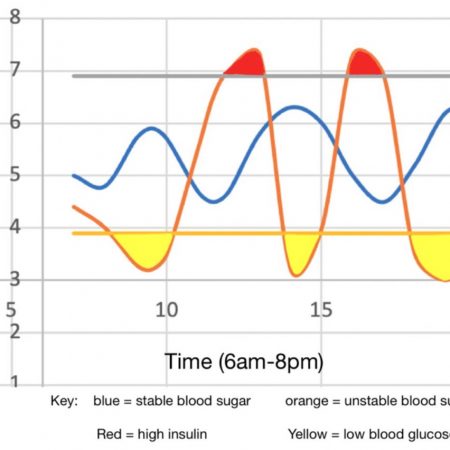
There has been a huge amount of research recently into the link between inflammation and depression. This is in contrast to the approach taken over the previous decades, where research was largely focused on the neurotransmitter model of depression. Mostly focused on serotonin and dopamine and the development of pharmaceutical drugs to correct these imbalances.
Neuroinflammation slows down nerve conduction and synaptic speed. The decrease in speed slows down activity in the relevant regions of the brain and can cause mood changes. Inflammation-related depression can be caused by traumatic brain injury, stroke or systemic inflammation throughout the body.
A common source of inflammation that is often overlooked is Hashimoto’s Thyroiditis. Hashimoto’s is an autoimmune condition in which the immune system attacks the thyroid gland. Naturally, fluctuating levels of thyroid hormone, which is common with this condition, can lead to periods of low thyroid hormone and result in significant depression.

Many people are already taking thyroid medication, which is essential for them. Still, they do not know if autoimmune reactivity to TPO and Tg antibodies is part of their low thyroid function, and it is worth having this checked.
Blood-Brain Barrier
Hashimoto’s affecting the brain
When the immune system is involved in hypothyroid issues, the targets for this immune attack are TPO enzymes and Tg proteins in the thyroid gland. For some people, particularly those with brain barrier permeability, the antibodies are then able to cross into the brain and can bind to cerebellar antibodies – this inflames and degenerates the brain and can be a cause of depression.
Gluten and cross-reactive foods

Many people with autoimmune conditions, including Hashimoto’s will also have gluten and dairy sensitivities and removing these foods from their diet can be very helpful.
Anxiety

There has been a huge increase in anxiety. From a neurological perspective, anxiety is caused by heightened activity in the amygdala and limbic parts of the brain. These parts of the brain play a role in all emotions and regulate fear and aggression.
When you are anxious, it is often possible to calm yourself down by breathing or taking the time to sit down and reason through a situation which activates the frontal lobe. Activating the frontal lobe calms down and gates the function of the limbic parts of the brain. If you are suffering from neuroinflammation, this dampening effect can become slowed and inefficient which leads to further anxiety.
Blood sugar Stability
This is another issue that is often overlooked and is often a problem for those struggling with their mood. In order to function well, the brain needs a steady supply of blood glucose. Although we often think of blood sugar as too high or too low, the reality is that blood sugar fluctuates according to what we eat, when we eat and our activity level. The rollercoaster of high and lows can make managing mood imbalances harder.
Both periods of high blood sugar and therefore high insulin and low blood sugar impact brain function, either directly through a lack of energy available to the brain to work or through other mechanisms that involve reduced production of neurotransmitters like GABA and dopamine.

No Single Solution
Other articles about Immunity

Why is Vitamin D so important?
Early science understood the calcium homeostasis role of Vitamin D and bone health. However, we now know that vitamin D plays a major biological role

What serum level of Vitamin D should I aim for?
Looking back to the early 20th century, it became known that vitamin D deficiency, brought about by lack of sunlight, caused rickets in young children.






























